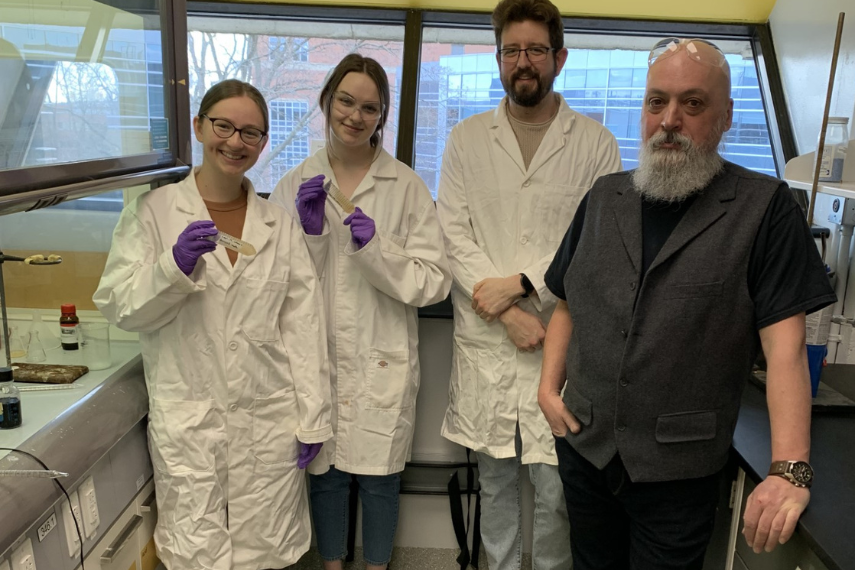Vaccine Research Targets Bacterial Infections

While the human body is well adept at fighting off infections from harmful bacteria, in some cases our immune defenses are insufficient and we become sick. Ingesting some of these bacteria in contaminated food or water are common occurrences among travelers and those living in developing countries. With antibiotic resistance on the rise, fewer treatments exist for combating these bacterial infections. However, researchers at the University of Guelph (U of G) are working on vaccines that could help control infections, relieving or preventing severe symptoms including diarrhea.
Developing and Testing a Vaccine
Bacteria have unique carbohydrates, or sugars, on their surface. These special sugars, called antigens, help the body to identify foreign harmful substances called pathogens. Our immune systems learn to produce antibodies - compounds that bind to specific antigens - in order to fight off an infection. Vaccines composed of pathogen-specific markers train our immune systems to produce these antigen-specific antibodies so that it can quickly react to a pathogen when it sees it in the future. While this may sound simple, producing a vaccine that specifically targets the special sugars on bacteria is a difficult challenge.
For the past 20 years, Dr. Mario Monteiro, a Professor in the Department of Chemistry at U of G, has focused on using carbohydrate chemistry to develop vaccines. The Monteiro group has been working on a treatment for bacterial diarrhea, with their work resulting in two previous human clinical trials in 2014 and 2022. Their latest trial, in collaboration with the US Naval Research Medical Center and biotech company Immuron, will test an oral therapeutic targeting two common strains of bacteria known to cause bacterial diarrhea: Campylobacter and E. coli.
Whereas most vaccines require multiple injections over the course of weeks to achieve sufficient immunity, this treatment will be administered orally with more immediate effects. The oral therapeutic was developed after cows treated with Monteiro’s vaccine developed highly specific and functional antibodies against Campylobacter and E. coli bacteria. The colostrum, a type of milk packed with antibodies, was collected and used to produce an oral treatment.
The trial, which will test how effective the treatment is at combating diarrhea resulting from bacterial infection, began in December 2023 at Johns Hopkins Bloomberg School of Public Health and is expected to be completed by February 2025.
A Major Milestone for Vaccine Research and Canada
It is rare for university research to result in human clinical trials, making this a major milestone.
“This is the third human clinical trial based on our research at the University of Guelph, which, to the best of our knowledge, makes us the only university lab in the world whose vaccine research has led to three human clinical trials,” says Monteiro.
If successful, the vaccine developed by the Monteiro lab could be produced and used by at risk groups and travelers in the coming years.
Plans are already underway for another human trial for a vaccine developed by the Monteiro group, this time targeting another gastro-intestinal pathogen, C. difficile, known to cause fatal infections.
This story was written by Carley Miki as part of the Science Communicators: Research @ CEPS initiative. Miki is a PhD candidate in the Department of Physics under Dr. John Dutcher. Her research focus is on understanding the forces and interactions between soft, sugar-based nanoparticles and how they differ when charged.
Further details on the technology behind the current clinical trial can be found in a publication and patent from the Monteiro research group:
Laird, R. M., et.al. Evaluation of a conjugate vaccine platform against enterotoxigenic Escherichia coli (ETEC), Campylobacter jejuni and Shigella. Vaccine. 2018, 36 (45), 6695-6702. doi: https://doi.org/10.1016/j.vaccine.2018.09.052 https://www.lens.org/lens/patent/084-473-195-837-916/frontpage?l=en

Department of Chemistry